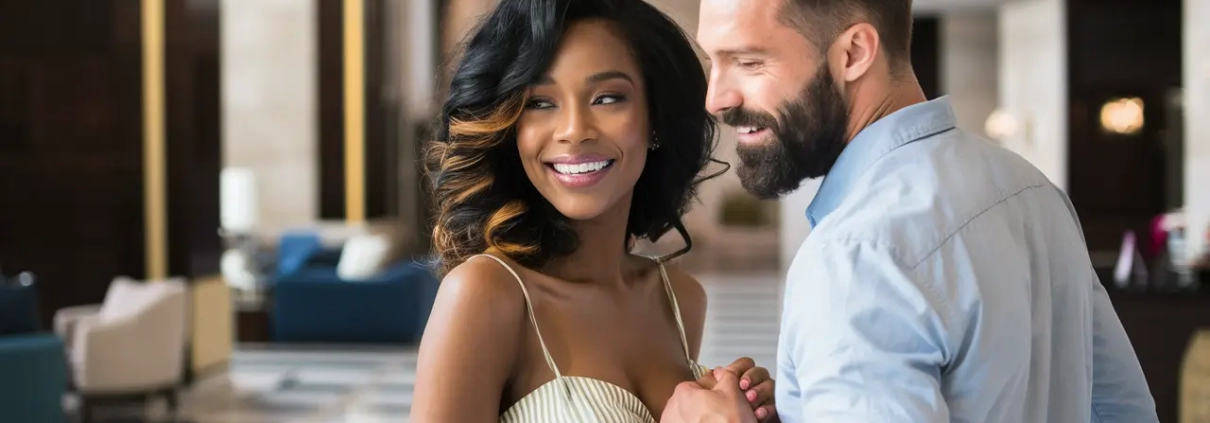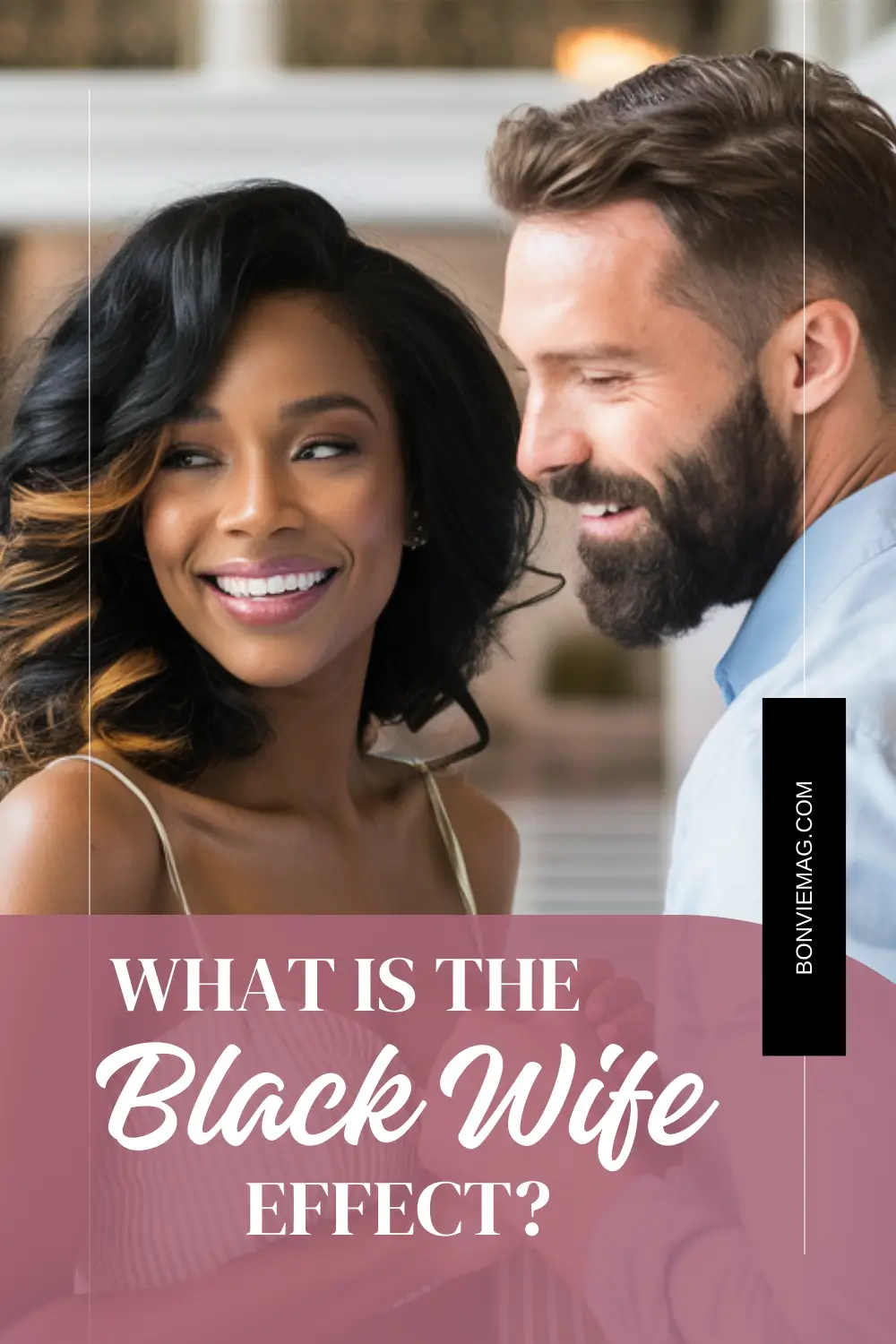Black women are beautiful, incredible, powerful catalysts for change. They also deserve to be celebrated for more than what they do for others.
If you’ve been anywhere near social media recently, you’ve probably heard of the “Black Wife Effect.”
The trend celebrates how the spouses and partners of Black women “glow up” after the relationship begins.
It’s hard to miss the striking before and after transformations.
In video after video, we watch shy, awkward, or somehow otherwise “uncool” non-Black people blossom into attractive, fashionable partners with the help of the Black women who love them.
The Black Wife Effect: What It Is & Why It Works
Black women are taught, almost from birth, to be supportive, encouraging, and nurturing to the people we love. When we choose a spouse, that care inevitably extends to them – we amplify the best in everyone around us.
Our love and support is a natural confidence booster! The combination of love, acceptance, and our innate sense of style rubs off.
Before you know it, sis has transformed her lovable Poindexter into a centerfold.
The Black Wife glow up is real, but it’s more than skin deep.
Because we are conditioned to strive for excellence and present our best selves every day, those close to us are motivated to elevate and do the same.
It’s a incredible concept – no one knows the magic of Black women better than we know ourselves – but, like many things centering Black women online, the conversation can quickly devolve.
From Appreciation to Entitlement
After a few days of popularity, the Black Wife Effect trend was quickly co-opted. There were “white wife effect” remakes and think pieces from detractors.
At the height of the trend, white women began posting videos of themselves and their spouses, declaring that they needed a Black wife to elevate them.
Some would argue that such videos are humorous additions to the trend, but are they?
The proliferation of these videos leads to an important question: Do some white people have an expectation of support and labor from Black women?
An Expectation of Labor
We’ve all heard stories about some Karen or another expecting a Black woman to attend to her at a moment’s notice. It happens in the workplace, in social settings, and apparently, on social media.
This speaks to the uncanny ability of white women to center themselves in experiences that expressly exclude them. What role would a white woman, who isn’t married to a Black woman, have in a trend about Black wives?
Has the Black Wife Effect trend further exposed that way of thinking? Some creators believe it has, and many have taken to social media to express their frustrations.
Given the historical context of Black women’s work in America in relation to the lives of white women, to suggest that Black women take on a “Queer Eye-esque” role in the elevating of white style is tone deaf at best.
The fact that a trend about the power of Black women’s love is being pushed toward a discourse about labor is telling. Despite decades of advancement and impact, many non-Black people choose to view Black women as being only valuable in relation to themselves, rather than as powerful, self-directed individuals.
Centering Black Women in Love
The women being celebrated in the Black Wife Effect trend extend their style and insight to their partners for a reason – they love them and are loved in return.
If you don’t exist as, aren’t coupled with, or married to a Black woman, the cultural discourse taking place around how a Black woman’s love heals and transforms is not meant for you – and that’s okay.
You are welcome to appreciate the awesome power and presence of Black women… you just aren’t entitled to it.
Black women deserve to be celebrated for all the wonderful things we are – not just for how we benefit others.
Want to see the #BlackWifeEffect in action? Check out the trend here. Kudos to the lovely couples.




Trackbacks & Pingbacks
[…] The Black Wife Effect has TikTok in a Chokehold […]
Leave a Reply
Want to join the discussion?Feel free to contribute!